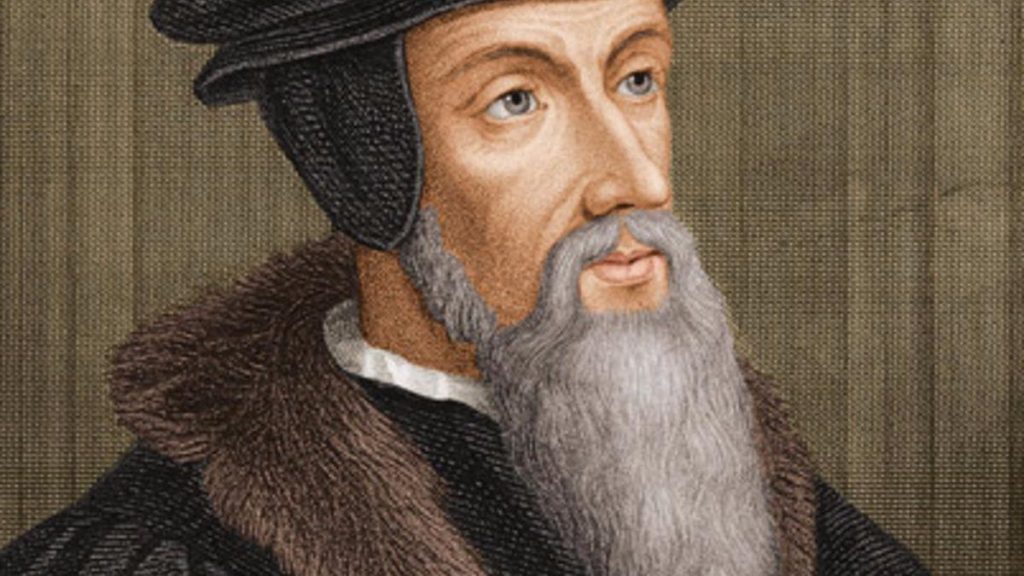Historical insights into christianity is very important. History is there for a purpose.
Otherwise people might think that just like the big bang theory that Christianity exploded into time.
Christianity, just like we were taught in school, is not a religion.
It is reduced to a religion when teachers who don’t have Christ teach it!.
It becomes a religion devoid of life taking men farther away from God instead of closer to Him.
With its foundation deeply rooted in the life, death, and resurrection of Jesus Christ,
It has grown through moments of profound transformation and through the lives of individuals dedicated to its propagation.

These pivotal moments and figures offer valuable insights into how God’s hand has moved throughout history to preserve and expand His church.
This article will explore significant events in church history and highlight biographies
of some Christian figures, providing a deeper appreciation of the faith’s enduring legacy.
As the Bible states, “Remember the former things of old; for I am God, and there is none else; I am God, and there is none like me” Isaiah 46:9.
By looking back on history, we can understand the work of God through His people and His church.
Pivotal Moments in Church History: Historical Insights into Christianity
According to historical accounts, Constantine experienced a pivotal moment before the Battle of the Milvian Bridge in 312 CE.
He reportedly saw a vision in the sky, a cross with the words “In this sign, conquer” (Latin: In hoc signo vinces).
That night, he had a dream in which Christ told him to use the symbol of the cross as his battle standard. He did so, leading to victory.
Also the Influence of His Mother, Helena who was a devout Christian and played a significant role in influencing his views on Christianity.
Constantine and Licinius jointly issued this edict, which granted religious tolerance throughout the empire and allowed Christians to worship freely.
A few years later, in 325 AD, the Council of AaNicaea convened to address heresies, particularly Arianism, which denied the divinity of Christ.
NB: Arianism is a theological doctrine that emerged in early Christianity. It is considered one of the most significant heresies in the history of the Church.
Core Beliefs of Arianism:
1. Jesus Christ as a Created Being:
Meaning that Jesus had a beginning and was not co-eternal with the Father.
2. Subordination of the Son:
Arianism asserts that the Son is subordinate to the Father in essence and nature.
3. Denial of Full Divinity:
Arians denied that Jesus was fully divine in the same sense as God the Father.
“For no one can lay a foundation other than that which is laid, which is Jesus Christ” 1 Corinthians 3:11
Pivotal Moments in Church History: Historical Insights into Christianity
2. The Reformation (1517)
The Protestant Reformation, sparked by Martin Luther’s 95 Theses in 1517, was another transformative moment. Martin Luther was born in (1483–1546). He is known as the key leader of the Protestant Reformation, a movement that fundamentally transformed Christianity in the 16th century.
Furthermore, he nailed his 95 Theses to the church door in Wittenberg, which outlined his objections to church practices and doctrines.
He also emphasised that salvation is by faith alone (sola fide), the authority of Scripture alone (sola scriptura), and the priesthood of all believers.
These theological principles became foundational for Protestant Christianity. He translated the Bible into German, making Scripture accessible to the common people allowing laypeople to access God’s Word directly.
The Reformation emphasized the priesthood of all believers, reminding Christians that they could approach God without intermediaries (1 Peter 2:9).
3. The Great Awakening (18th Century)
The Great Awakening was a series of revivals that swept through America and Europe in the 18th century. Preachers like Jonathan Edwards and George Whitefield emphasized personal conversion and a heartfelt relationship with Christ. Their fiery sermons led thousands to repentance and a deeper commitment to the faith.
This period also inspired missionary work and the establishment of educational institutions like Princeton and Harvard, originally founded to train ministers.
The movement’s emphasis on personal faith over formal religiosity revitalized the church and had a profound cultural and social impact.
“Will you not revive us again, that your people may rejoice in you?” Psalm 85:6
Biographies of Influential Christian Figures: Historical Insights into Christianity
1. Paul the Apostle
One of the most influential figures in Christian history, Paul’s missionary journeys and epistles form a significant portion of the New Testament. A former persecutor of Christians, Paul’s dramatic conversion on the road to Damascus (Acts 9) showcases the transformative power of Christ. His writings, including Romans, 1 Corinthians, and Ephesians, continue to shape Christian theology and practice.
“I have fought the good fight, I have finished the race, I have kept the faith” (2 Timothy 4:7
2. Augustine of Hippo
His famous quote:”Thou hast made us for Thyself, O Lord, and our heart is restless until it rests in Thee.”
Augustine of Hippo (354–430 AD) was one of the most influential theologians, and Church Fathers in Western Christianity.
So, his writings profoundly shaped Christian doctrine, particularly in areas of grace, sin, and salvation, and his works remain foundational to both Catholic and Protestant traditions.
Augustine was born on November 13, 354, in Thagaste (modern-day Algeria) in North Africa. His mother, Monica, a devout Christian deeply influenced his spiritual journey.
Despite, his success as a teacher of rhetoric, Augustine felt a spiritual emptiness. His search for truth led him to Neoplatonism and the writings of Cicero and Ambrose, the bishop of Milan.
So in 386, Augustine experienced a profound spiritual awakening. Inspired by Romans 13:13–14, he abandoned his former life and was baptized by Ambrose in 387.
His mother, Monica, rejoiced at his conversion but passed away shortly after. In 395, he became the Bishop of Hippo, a position he held until his death.
Augustine developed the doctrine of original sin and emphasized God’s grace as essential for salvation.
His debates with Pelagius led to the condemnation of Pelagianism, which denied original sin and emphasized human effort in salvation.
“For it is by grace you have been saved, through faith—and this is not from yourselves, it is the gift of God”
Biographies of Influential Christian Figures: Historical Insights into Christianity
3. Martin Luther
Famous quote : “Here I stand, I can do no other. God help me. Amen.”
Martin Luther (1483–1546) was a German theologian, priest, and reformer who became the central figure of the Protestant Reformation, a movement that reshaped Christianity in the 16th century and gave rise to Protestant denominations. His actions and writings challenged the authority of the Catholic Church, emphasizing salvation by faith and the primacy of Scripture.
Martin Luther was born on November 10, 1483, in Eisleben, Germany, to Hans and Margarethe Luther. His father was a miner who wanted Martin to pursue a career in law.
Despite his religious devotion, Luther struggled with the fear of divine judgment
His studies of the Bible, particularly the letters of Paul, led him to conclude that salvation came through faith alone (sola fide), not works or indulgences.
On October 31, 1517, Luther nailed his 95 Theses to the church door in Wittenberg. These theses criticized the sale of indulgences and other practices of the Catholic Church, sparking widespread debate.
Also, Luther’s refusal to recant his views at the Diet of Worms (1521) led to his excommunication by Pope Leo X and his condemnation as an outlaw by the Holy Roman Emperor Charles V.
Finally, while in hiding at Wartburg Castle, Luther translated the New Testament into German, making the Scriptures accessible to ordinary people.
His work laid the foundation for the modern German language.
Luther championed key principles like:
Sola Scriptura (Scripture alone): The Bible is the sole authority for faith and practice.
Salvation comes through faith, not works (Sola Fide, Faith alone)
Sola Gratia (Grace alone): Salvation is a gift of God’s grace.
“The righteous shall live by faith” Romans 1:17
4. John Calvin

John Calvin (1509–1564) was a French theologian, pastor, and reformer who became one of the most significant figures of the Protestant Reformation.
Around 1533, Calvin experienced a religious conversion, adopting Protestant beliefs and rejecting Roman Catholic doctrines.
He described this event as a “sudden conversion” that brought him to a firm understanding of God’s truth.
Theological Contributions:
Predestination: Calvin is most famous for his doctrine of predestination, the belief that God has foreordained some people to eternal salvation (the “elect”) and others to damnation.
Sola Scriptura:
Calvin emphasized the authority of Scripture alone (sola scriptura) as the foundation for Christian faith and practice.
Sanctification:
Calvin stressed the importance of living a holy life, reflecting God’s grace through good works, not as a means of salvation but as evidence of faith.
Biographies of Influential Christian Figures: Historical Insights into Christianity
5. C.S Lewis
Famous Quote: “I believe in Christianity as I believe that the sun has risen: not only because I see it, but because by it I see everything else.” (The Weight of Glory)
Clive Staples Lewis (1898–1963) was born on November 29, 1898, in Belfast, Ireland (now Northern Ireland). Popularly known for his fictional series “The Chronicles of Narnia” and his thought-provoking Christian apologetic works.
As a young man, Lewis was an atheist, influenced by rationalism and materialism.
However, he was deeply affected by conversations with friends like J.R.R. Tolkien (author of The Lord of the Rings) and Owen Barfield, as well as by his reading of Christian thinkers like G.K. Chesterton.
In 1929, Lewis converted to theism and, in 1931, to Christianity, becoming an Anglican. He described his conversion in his spiritual autobiography, Surprised by Joy.
6. John Wesley
Famous Quotes: “The best thing of all is God is with us.”
“Do all the good you can, by all the means you can, in all the ways you can, in all the places you can, at all the times you can, to all the people you can, as long as ever you can.”
John Wesley (1703–1791) an English theologian, and missionary who is known as the founder of the Methodist movement. He was born on June 28, 1703, in Epworth, Lincolnshire, England. His mother a devout and intellectually rigorous woman profoundly influenced his spiritual life.
However, the pivotal moment in Wesley’s life occurred on May 24, 1738, when he attended a meeting on Aldersgate Street in London.
During a reading of Martin Luther’s Preface to the Epistle to the Romans, Wesley experienced a profound spiritual awakening, famously describing it as the moment when his heart was “strangely warmed.”
This marked his conversion to a deep, personal faith in Christ, emphasizing salvation by grace through faith.
Wesley’s theology was deeply rooted in Arminianism(a theological framework that emerged as a response to the
doctrines of Calvinism), emphasizing free will, prevenient grace, and the possibility of falling from grace often referred to as “conditional security.”
However, this was in contrast to the Calvinistic doctrines of predestination that were more common in the Reformed tradition.
The central tenets of Arminianism emphasize human free will in response to God’s grace and reject the strict determinism of Calvinism.
Conclusion

From the struggles of the early church to the boldness of reformers and missionaries,
each moment and individual serves as a reminder of the enduring relevance of Christ’s message.
The history of Christianity is a testament to God’s faithfulness and the transformative power of the gospel.
Littered on the pathway and corridors of it are men who through faith like the book of
Hebrews shut the mouth of lions and dared heavy things in God.
A testament to the fact that even up until now the book of faith is still open
Waiting for men who despite all odds inscribed their names there
For in every time and dispensation God will always find His man (male or female).
Finally, as we reflect on these pivotal moments and influential figures, we are reminded of
Hebrews 13:8: “Jesus Christ is the same yesterday and today and forever.”Amen!!
You can check the article Faith and Work: Integrating Your Beliefs into Your Career

